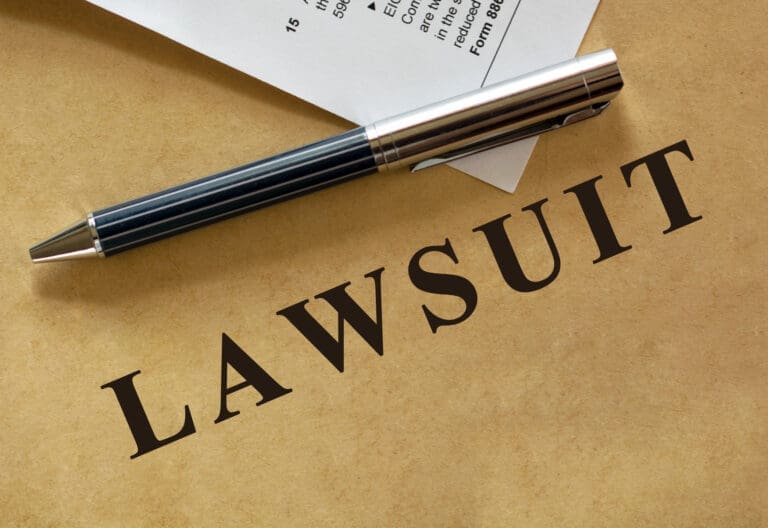
Antitrust law is essential in maintaining fair competition in the marketplace. It prevents monopolies, promotes healthy competition, and protects consumers from unfair business practices. This article provides an in-depth look at antitrust law, its implications, and how it affects businesses and consumers.
What is Antitrust Law?
Antitrust law refers to regulations that promote competition by limiting the market power of any particular firm. This includes laws against monopolies, cartels, and other forms of collusion that can harm consumer welfare and economic efficiency.
Key Components of Antitrust Law
Antitrust law encompasses several key components aimed at promoting fair competition:
- Prohibiting Monopolies: Antitrust laws prevent companies from gaining or maintaining monopoly power through unfair practices. A monopoly can stifle competition and lead to higher prices and reduced innovation.
- Preventing Anti-Competitive Mergers: Fusiones y adquisiciones that significantly reduce competition are scrutinized under antitrust laws. Regulators ensure that such mergers do not create monopolies or oligopolies that can harm consumers.
- Banning Collusive Practices: Agreements between competitors to fix prices, divide markets, or limit production are illegal. Such collusion undermines competitive market dynamics and can lead to higher prices and less choice for consumers.
The Role of Regulatory Bodies
Regulatory bodies play a crucial role in enforcing antitrust law:
- Federal Trade Commission (FTC): In the United States, the FTC investigates and challenges anticompetitive practices. It has the authority to take legal action against companies that violate antitrust laws.
- Department of Justice (DOJ): The DOJ’s Antitrust Division also enforces antitrust laws, particularly in cases involving criminal violations such as price-fixing and bid-rigging.
- European Commission: In the European Union, the European Commission enforces competition laws, ensuring that businesses operate fairly and do not abuse their market power.
Casos prácticos o ejemplos
Real-world examples illustrate the impact of antitrust law:
- Case Study 1: The DOJ sued Microsoft in the late 1990s, alleging that the company used its monopoly power in the PC operating systems market to stifle competition. The case resulted in a settlement that imposed various restrictions on Microsoft’s business practices to restore competitive conditions in the software market.
- Case Study 2: In 2020, the FTC filed a lawsuit against Facebook, accusing the social media giant of anticompetitive practices by acquiring potential rivals like Instagram and WhatsApp. The case highlights the ongoing scrutiny of large tech companies’ market dominance and their impact on competition.
Análisis comparativo
A comparative analysis of antitrust laws in different countries can provide insights into their effectiveness:
- United States: The U.S. has a long history of antitrust enforcement, with laws such as the Sherman Act, Clayton Act, and Federal Trade Commission Act. These laws collectively prohibit monopolistic practices, anticompetitive mergers, and unfair business practices.
- European Union: The EU’s competition laws are among the strictest globally, with significant fines for companies that violate rules. The European Commission actively investigates and penalizes companies for abusing market power or engaging in collusion.
- China: China’s antitrust laws have evolved rapidly, with increased enforcement actions against domestic and foreign companies. The Anti-Monopoly Law, enacted in 2008, aims to prevent monopolistic behavior and promote fair competition.
Desglose detallado de las consecuencias jurídicas
Violating antitrust law can result in severe legal consequences:
- Fines and Penalties: Companies found guilty of antitrust violations can face hefty fines. In the EU, fines can be as high as 10% of a company’s global turnover.
- Injunctions and Remedies: Courts can issue injunctions to stop anticompetitive practices and impose remedies such as divestitures or changes in business practices to restore competition.
- Acusaciones penales: In some jurisdictions, individuals involved in antitrust violations, such as price-fixing or bid-rigging, can face criminal charges, including imprisonment.
Guía paso a paso con imágenes
A step-by-step guide to understanding antitrust law can help businesses ensure compliance:
- Assess Market Position: Evaluate your company’s market position and identify any potential risks of monopolistic behavior.
- Review Mergers and Acquisitions: Conduct thorough antitrust reviews before pursuing mergers or acquisitions. Consult with legal experts to assess the impact on market competition.
- Implement Compliance Programs: Develop and implement antitrust compliance programs. Train employees on antitrust laws and monitor business practices to prevent violations.
- Engage with Regulators: Maintain open communication with regulatory bodies. Seek guidance and report any concerns about potential antitrust issues.
Tecnología y herramientas
Modern technology offers tools to help businesses comply with antitrust law:
- Compliance Software: Software solutions can help businesses track and monitor compliance with antitrust regulations. These tools can automate the process of identifying potential risks and reporting violations.
- Data Analytics: Advanced data analytics can help companies analyze market trends and detect anticompetitive behaviors. This proactive approach can prevent violations and ensure fair competition.
- Legal Platforms: Online platforms like Abogados.Media provide access to legal resources and expert advice on antitrust issues, helping businesses navigate complex regulations.
Elementos interactivos
Interactive elements can enhance understanding of antitrust law:
- Quizzes: Test your knowledge of antitrust laws and their implications with interactive quizzes.
- Calculators: Use online calculators to estimate potential fines for antitrust violations based on company turnover.
- Simulations: Participate in simulations that demonstrate the impact of antitrust violations and the steps required to ensure compliance.
FAQ Section – Questions and Answers
Q: What are the main goals of antitrust law? A: The main goals of antitrust law are to promote fair competition, prevent monopolies, and protect consumers from unfair business practices.
Q: How can my company avoid antitrust violations? A: Implement a robust compliance program, regularly review business practices, and consult with legal experts to ensure adherence to antitrust regulations.
Q: What should I do if I suspect a competitor is engaging in anticompetitive behavior? A: Report the suspected behavior to relevant regulatory bodies, such as the FTC or DOJ in the United States, or the European Commission in the EU.
Cambios y tendencias legislativas
Staying informed about legislative changes and trends in antitrust law is crucial:
- New Regulations: Governments worldwide are updating antitrust laws to address new market dynamics and technological advancements. Stay informed about these changes to ensure compliance.
- Increased Scrutiny of Big Tech: Regulatory bodies are increasingly scrutinizing large technology companies for potential antitrust violations. Understand the implications of these investigations and how they may affect your business.
- Global Cooperation: There is growing cooperation between international regulatory bodies to enforce antitrust laws and tackle global anticompetitive practices.
Consideraciones éticas
Ethical considerations are vital in adhering to antitrust law:
- Corporate Responsibility: Companies have a responsibility to promote fair competition and avoid practices that harm consumers and other businesses.
- Transparency: Maintain transparency in business operations to build trust with regulators and consumers. Transparent practices can prevent misunderstandings and potential violations.
- Fair Treatment of Competitors: Engage in fair competition by focusing on innovation and quality rather than undermining competitors through unethical practices.
Type of Attorney for This Type of Legality to Represent the Client and How to Find Them on Attorneys.Media
When dealing with antitrust law, it is essential to seek legal assistance from an attorney specializing in this field. These attorneys can help you navigate complex regulations, ensure compliance, and represent you in legal proceedings.
- Antitrust Attorneys: These lawyers specialize in antitrust law and have extensive knowledge of competition regulations. They can provide expert advice, conduct compliance audits, and represent your company in investigations or lawsuits.
- Corporate Attorneys: Corporate attorneys with experience in antitrust issues can assist with mergers and acquisitions, ensuring that transactions comply with antitrust regulations. They can also help develop and implement compliance programs.
- Regulatory Attorneys: Attorneys who focus on cumplimiento de la normativa can guide your company in adhering to antitrust laws and engaging with regulatory bodies. They can help you understand the implications of new regulations and ensure your business practices are compliant.
To find a suitable attorney, visit Abogados.Media and search for lawyers specializing in antitrust law, derecho de sociedadeso cumplimiento de la normativa. The platform offers a comprehensive directory of legal professionals, making it easier to find the right attorney to represent your case.
Conclusión
Understanding and complying with antitrust law is crucial for maintaining fair competition and protecting consumer rights. By staying informed about regulations, implementing compliance programs, and seeking expert legal assistance, businesses can navigate the complexities of antitrust law effectively. Utilize available technology and tools, stay updated on legislative changes, and prioritize ethical considerations to ensure your company operates within the bounds of the law.
Attorneys.Media Video Document References
- Is Personal Injury Part of Your Law Practice?
- As an Attorney, How Are You Generating Content for Your Online Presence?
- How Can You Help Potential New Clients Get Their Questions Answered?
- How Do You Differentiate Yourself When Someone Looks Online for Help?
- How Do You Differentiate Yourself as a Criminal Defense Attorney?
- Have You Been Thinking About Video Marketing for Your Law Firm?
- Should Attorneys Use Video Marketing to Attract New Clients?
- What Do Potential Clients See When They Research Your Name Online?
- Cómo puede ayudarle Attorneys.Media








